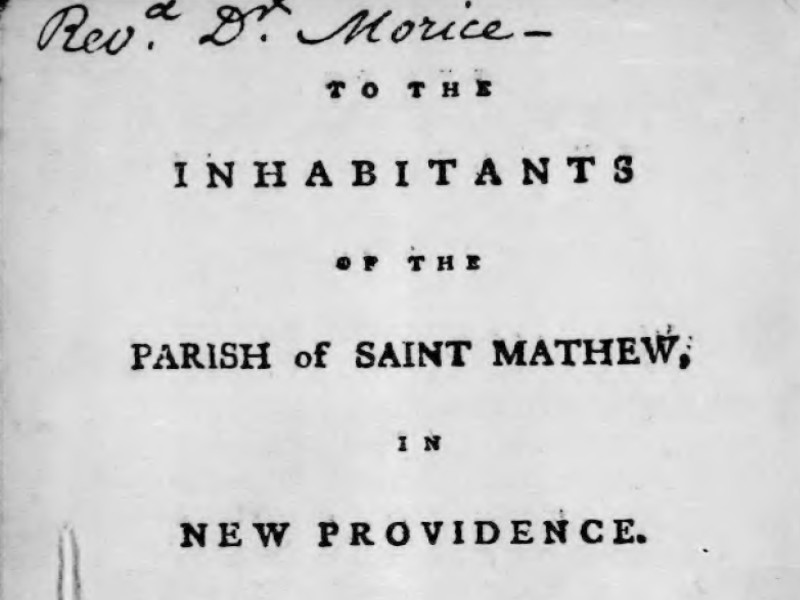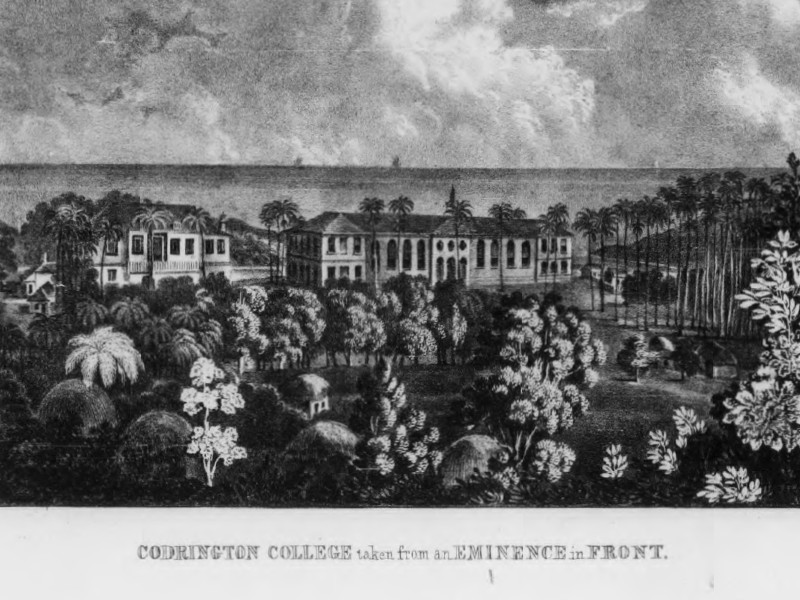The West Indies in Records from Colonial Missionaries, 1704–1950

The West Indies through the eyes of Anglican missionaries, 1704–1950
The papers of the SPG remain an invaluable source for the study of developing countries from the eighteenth century onwardsUniversity College of Wales, Aberystwyth
Access the full collection
Access the full archive of The West Indies in Records from Colonial Missionaries, 1704–1950.
Institutional Free Trial
Start your free trialRegister for a free 30-day trial of The West Indies in Records from Colonial Missionaries, 1704–1950, for your institution.
Institutional Sales
Visit Sales PagesellFor more information on institutional access, visit our sales page.
Single User License
Purchase a license below to view the full collection.
Already have a license? Sign in.
The West Indies through the eyes of Anglican missionaries, 1704–1950

The West Indies in Records from Colonial Missionaries, 1704–1950 was curated in association with the Bodleian Library.
This collection contains records compiled by the United Society Partners in the Gospel (USPG), a UK-based Anglican missionary organisation that operates globally. From the eighteenth to the early twentieth century, the USPG went by the name of the Society for the Propagation of the Gospel in Foreign Parts (SPG).
This collection contains letters, reports, and supplementary material relating to missionaries in the West Indies during the period 1704–1950. These archival sources track a shift in the SPG’s purpose. Originally, the society owned enslaved people. Yet it subsequently focused on spreading the gospel to the recently emancipated. The collection highlights the injustices generated by this form of evangelism. For example, the society received a charitable gift in the form of Codrington College to educate black children. Yet this funding was instead used as a source of private income and to establish a school that only admitted white children. It took more than a century before black children were educated at the institution.
The West Indies in Records from Colonial Missionaries, 1704–1950 contains a wealth of information, including updates on the progress of the mission, reflections on the declining support for Christian missionaries in the West Indies, correspondence regarding Codrington College, and reports on how monetary grants were spent. The papers provide students and researchers with unique insights into the evolution of the SPG and the wider development of Christianity throughout the West Indies.
Contents
The West Indies in Records from Colonial Missionaries, 1704–1950...
The West Indies through the eyes of Anglican missionaries, 1704–1950
Discover
Highlights

Licensed to access Settling the estate, 1704–1726
This document includes papers relating to General Codrington’s will in which he left a charitable gift to the SPG to set up Codrington College for the purpose of educating black children. The document also contains inventories of Codrington's plantations.

Licensed to access Missionary reports, 1936–1950
The death of Anglican Archbishop Huston in 1936 marked the end of an era. Missionary reports from the period following his death highlight the decreasing support for Christian missionaries throughout the West Indies. The sources in the document also reference the labour riots in Trinidad in 1937. These were a response to poor working conditions and inadequate pay.
Insights
This collection contains information on the West Indies from the perspective of missionaries from the SPG. The documents cover Antigua, the Bahamas, Barbados, Guyana, Jamaica, Montserrat, Nevis, and Trinidad.
The many reports in this collection feature discussions concerning issues such as poverty, war, smallpox, the treatment of enslaved people, the loyalty of missionaries in the Bahamas, the emancipation of enslaved people, and resistance to educating black children on the part of British colonial authorities in Barbados.
This collection includes papers that reveal the story of Codrington College, not least the way in which its early overseers refused to follow through on its initial purpose: providing black children with education. In fact, it took more than a century before black children were admitted.
The collection includes correspondence and reports from the West Indies, dating between 1704 and 1950. These letters and reports typically informed the SPG headquarters of the progress of the mission.
This collection covers a period of social unrest in the British West Indies. Between 1934 and 1939 there were riots and protests that aimed to highlight and combat wealth inequality. Such protests encouraged the development of indigenous party politics which, in-turn, helped to bring about the establishment of self-government and independence in the region.
Unlock Historical Research for Your Institution
Provide your students and researchers with direct access to unique primary sources.









